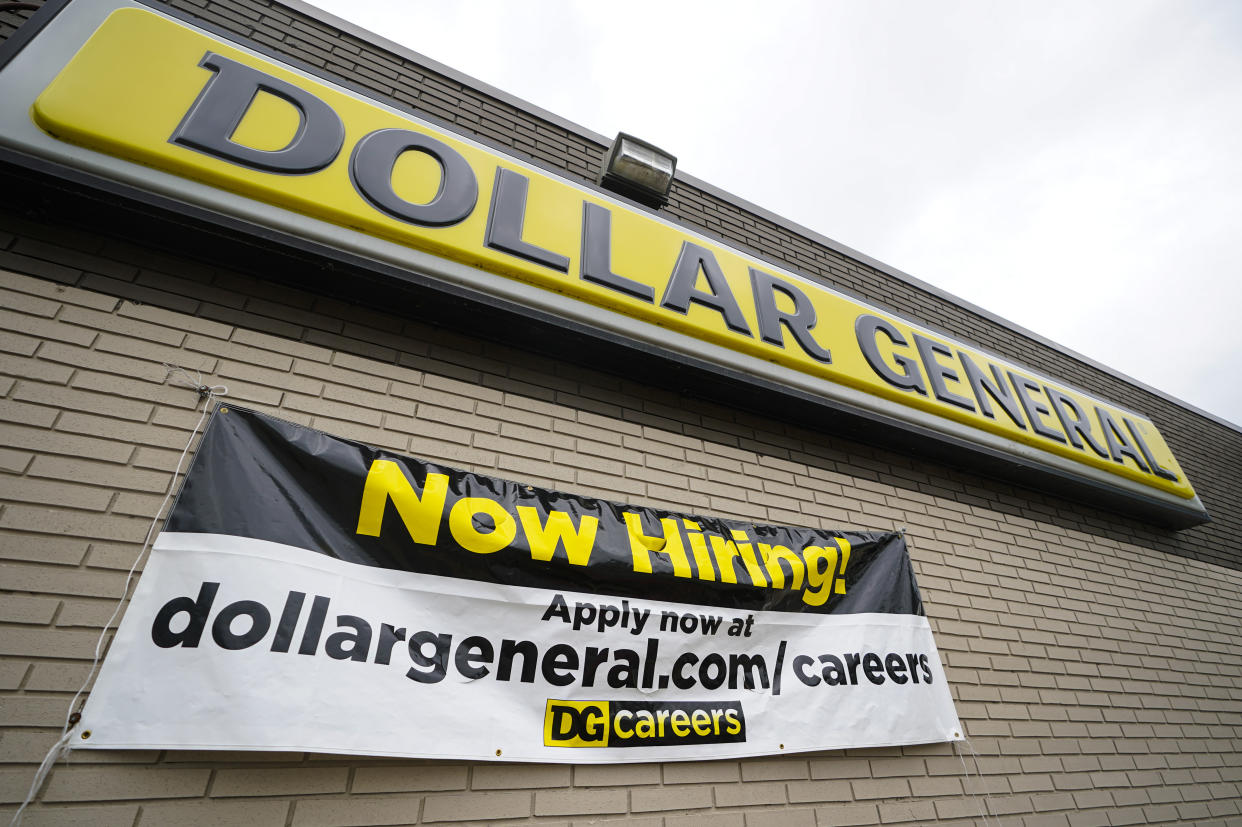Biden’s unexpected jobs problem
When President Biden took office in January, the main problem with the economy was that there weren’t enough jobs for all the workers who wanted one. Now there aren’t enough workers to fill all the jobs that are open.
A government survey of employment turnover knows as JOLTS found there were 8.1 million unfilled jobs in March, the largest number since the survey began in 2000. That’s a million more open jobs than there were just two months earlier and 3.5 million more than last May, when pandemic layoffs peaked.
Another survey by a small-business lobbying group found that 44% of businesses say they can’t fill open positions, also the highest level on record. That's double the historical average of just 22% of businesses saying they can’t fill open positions. And this comes after the April jobs report showed far slower job creation than most economists had forecast.
This rapid tightening in the labor market is good news, in a way. The economy is recovering from the coronavirus shutdowns faster than many economists and business owners expected. Demand for many goods and services is surprisingly strong, with consumers in much better shape than they normally are in the aftermath of a recession.
But the sudden worker shortage is a political problem for Biden, too. The $1.8 trillion American Rescue Plan Congress passed in March—the first plank of Biden’s three-part economic program—extended federal unemployment benefits of $300 per month into early September. Combined with state aid, the maximum weekly benefit tops $750 in 27 states. A weekly benefit of $750 equates to nearly $19 an hour, more than many jobs pay, especially in service-sector industries such as restaurants and retail. On paper, there’s surely an incentive for some workers to collect aid instead of going back to work.
It’s a leap to conclude that millions of workers are, in fact, choosing benefits over work. But that won’t stop Biden’s critics from claiming he’s shackling the economy. The influential US Chamber of Commerce has called for Congress to suspend the $300 weekly stipend, and at least five states with Republican governors—Alabama, Arkansas, Mississippi, Montana and South Carolina—have announced plans to end the federal benefit for state residents. Republicans now have a bit of ammunition to back their claims that Biden’s generous spending programs go too far.
Biden still wants Congress to pass another $4 trillion in spending on infrastructure, green energy and social welfare programs, with new tax hikes on businesses and the wealthy to pay for some of it. That may be getting harder, too, as the economy heats up. Biden characterizes those programs as part of his “build back better” plan, but you can’t build without workers. With Republicans unlikely to support any of Biden’s plans, he’ll need the votes of virtually every Democrat in Congress, and there are a few moderate Dems who might think the economy has already had enough government help.
Biden acknowledged the incentive problem in remarks on May 10, when he said, “anyone collecting unemployment who is offered a suitable job must take the job or lose their unemployment benefits.” That’s technically true, but it’s also naïve, because jobless workers can fulfill the requirements for getting aid while still dodging work, it that’s what they choose. The rules are tough to enforce, especially when Covid risks, remotely schooled kids and other factors are legitimate reasons for the unemployed to stay home.

It’s possible the “worker shortage” could be a temporary blip that causes Biden no harm. When the federal jobless supplement expires in September, there will be a stronger incentive to return to work—with 14 months left until the midterm elections in 2022. Some prominent employers, including Tyson Foods and Chipotle, are also raising wages to attract more workers, and meaningful wage gains are starting to show up in aggregate data. That’s the free-market solution many economists would like to see, even if government benefits are one of the things pushing pay up.
Rick Newman is the author of four books, including "Rebounders: How Winners Pivot from Setback to Success.” Follow him on Twitter: @rickjnewman. You can also send confidential tips, and click here to get Rick’s stories by email.
Read more:
Get the latest financial and business news from Yahoo Finance
